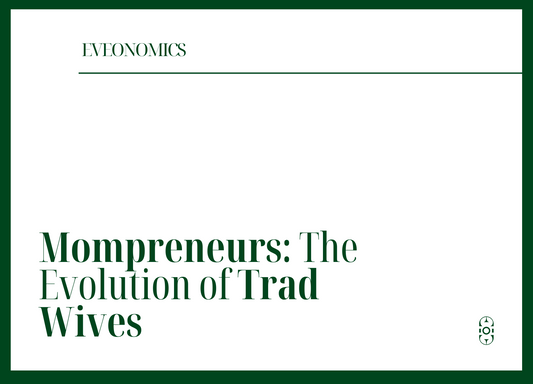This week in Journey to Wealth, we explore the nuanced and often overlooked virtue that is essential in finance: humility. There’s a certain irony in approaching wealth-building with humility—a concept that isn’t typically associated with the accumulation of money. Yet, humility, grounded in an understanding that the future is unpredictable, is precisely what separates those who build enduring wealth from those chasing short-term highs. It’s about respecting the market's volatility, recognising the limits of one’s own foresight, and preparing for life’s inevitable curveballs.
Embracing Uncertainty in Financial Planning
Humility in finance begins with the acceptance that no matter how many degrees or how much experience you accumulate, you cannot predict the future. There’s a reason why markets move in ways even seasoned experts don’t anticipate. Wealth-building, then, isn't about making grand bets and trying to outsmart everyone else. It’s about constructing a financial plan that is resilient—one that can absorb the unexpected and adapt to shifts.
Everyday investors, just like the wealthy, can internalise this by embracing diversification. Diversifying your portfolio is more than a financial tactic; it’s an acknowledgment that you cannot foresee which industries or assets will thrive. Instead of aiming for speculative gains in high-risk stocks, spread your investments across asset classes—stocks, bonds, real estate. In doing so, you’re creating a buffer for downturns, acknowledging that no one has all the answers.
The Power of Patience and Long-Term Thinking
In the pursuit of wealth, patience is an extension of humility. You don’t create generational wealth through impulsive decisions or by trying to capitalise on every “hot” tip. It’s in the slow, deliberate growth, much like watching a tree grow over decades.
Morgan Housel, in The Psychology of Money, drives home the point that it’s not the savviest, most technically astute investors who succeed; it’s those who have the patience and emotional discipline to stay the course. They understand that wealth is the outcome of steady, unsexy habits. Everyday people can adopt the same mindset by automating their savings, choosing strategies like dollar-cost averaging, and resisting the temptation to pull out of the market when it’s in turmoil. Trust the process. Trust that the small, consistent steps will compound into something remarkable over time.
Risk Management: A Humble Approach to Wealth Building
Risk management is at the heart of a humble approach to finance. Rather than chasing high returns, wealthy investors—those who play the long game—allocate their assets in ways that protect their wealth while still leaving room for growth. This strategy acknowledges that with greater potential reward comes greater potential risk.
For everyday people, this means balancing risk with prudence. Consider the reality that while stocks may offer higher returns, they’re also more volatile. Instead of focusing all your investments in one high-risk area, think of a balanced portfolio like a carefully curated wardrobe—each piece (stocks, bonds, real estate) plays a role. Your bonds? They’re the classic pieces that never go out of style—steady and dependable. Your real estate? The bold statement pieces, adding significant value over time. It's the balance that ensures your overall financial picture remains stylish—and strong.
Learning from Mistakes and Remaining Adaptable
To be humble in finance is to be open to mistakes—and more importantly, learning from them. There’s a certain grace that comes from recognising when you’ve made a misstep and using that experience to refine your approach. Wealthy investors don’t avoid mistakes; they absorb them, adapt, and keep moving forward.
This is a lesson for all. You don’t need to be a hedge fund manager to check in on your financial strategy and adjust accordingly. Whether that means sitting down once a year with your advisor or simply revisiting your savings and investment plan, humility reminds us that no plan is perfect. Be adaptable, stay curious, and remain committed to your goals, but flexible in how you achieve them.
Continuous Learning: Staying a Student of Finance
Humility also means recognising that the learning never stops. No matter how much wealth one has accumulated, the truly wise understand that markets evolve, economies shift, and new financial tools emerge. It’s essential to remain a student of the game, continuously updating your knowledge to navigate the complexities of finance.
For everyday individuals, this means seeking out educational resources, reading personal finance books, attending webinars, or subscribing to financial newsletters. Humility drives a constant pursuit of improvement, even in the realm of financial literacy. The wealthiest people often aren’t those who know it all—they’re the ones who know enough to keep learning.
Planning for Multiple Scenarios
Finally, humility reminds us that life doesn’t follow a script. Financial planning needs to account for multiple scenarios, from career changes to economic recessions, from family crises to market booms. Wealth managers, when working with high-net-worth clients, always build a plan that anticipates a variety of outcomes.
Everyday individuals can do the same by creating an emergency fund, buying adequate insurance, and keeping liquid assets for life’s inevitable surprises. Being prepared isn’t about pessimism—it’s about foresight. It’s about acknowledging that success isn’t guaranteed, but resilience can be built into every plan.
Conclusion: Humility as a Key to Wealth
Humility in finance is a quiet but powerful tool. It is what keeps investors grounded, allowing them to plan realistically and maintain long-term focus. It is what separates those who build enduring wealth from those who chase short-term gains.
For those on the journey to wealth, let humility guide you. Build with care, respect the uncertainty of the future, and remember that while you can’t predict the market’s next move, you can always prepare for it.
Now, take a moment to reflect on your financial behaviours. Does humility play a role on your Journey to wealth? Comment below and share your experiences?
*This article is for general information purposes only and is not financial advice. We are not licensed financial advisors. Please consult a qualified professional before making any investment decisions to ensure they fit your specific financial situation.





